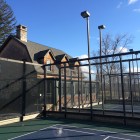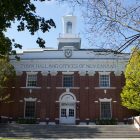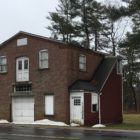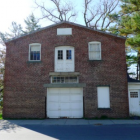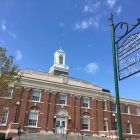Government
‘It’s a Great Town We Live In’: Councilmen Praise Public-Private Partnerships in Funding Waveny Trails, Platform Tennis Court [UPDATED]
|
Citizens’ generosity helped push New Canaan’s legislative body last week to approve taxpayer funding of projects that will enhance Waveny for two sets of park users. Members of the Town Council in approving bond issuances of $50,000 and $70,000, respectively, to improve trails at the popular park and to create a fifth platform tennis court—an additional requested for several years—cited donations from two private groups as reasons to move forward. Specifically, the Waveny Park Conservancy is matching dollar-for-dollar the town’s $50,000 investment in improving trails starting with those that run behind “the cornfields” (soon to become ‘Waveny Meadows’), and platform tennis users are contributing $35,000 upfront toward a fifth court. “Those two projects are just a great example of how lucky we are to have the public and private combination of funds because without the private part of this, we would not be able to get this done,” Town Councilman Steve Karl said at the group’s regular meeting, held May 16 at Town Hall. “With the trails, we are basically doubling the amount of money we are spending there, and in the case of the platform tennis court, it’s another $35,000 in.
